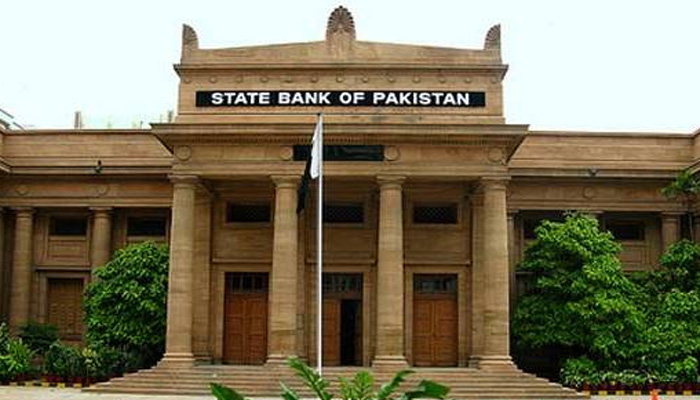Loss-making public sector enterprises borrow Rs52 billion in July-August
KARACHI: Pakistan’s state-owned enterprises have borrowed a staggering Rs52 billion since the start of the current fiscal year, heightening the need of restructuring or privatisation of loss-making companies advised by the IMF to instill fiscal discipline.
The State Bank of Pakistan’s (SBP) data showed that public sector enterprises (PSEs) managed to have retired Rs31 billion in banks’ loans between July 1 and August 17 of 2017/18.
Analysts said a renewed demand for bank loans by PSEs indicate that the government failed to keep state-owned enterprises afloat and wean them off loans they needed to run their daily affairs.
The analysts said PSEs’ inability to meet their expenditures strengthened the claims of International Monetary Fund (IMF) and other financial institutions which stressed privatisation of loss-making PSEs to reduce fiscal deficit that widened to alarming 6.6 percent of GDP in FY2018 compared to 5.8 percent a year earlier.
Privatisation and restructuring of key loss-making PSEs have been largely on hold due to political consideration, building up pressure on scarce budgetary resources and sometime at the cost of social sector.
Analysts criticised the lopsided policy that prefers to feed loss-making companies, but cuts off development spending. The government planned to shut down 1,500 utility stores that provide subsidised groceries to low-income households.
Loss-making state-owned enterprises have been
continuously depending on banking loans as the governments, being their guarantor, relieve them off duty of repayments.
Pakistan International Airlines Corporation (PIA), Water and Power Development Authority (Wapda), Pakistan Steel Mills (PSM) continued to incur huge financial losses.
PIA accumulated highest losses followed by Wapda and PSM. The combined accumulated losses by these PSEs now exceed Rs1.2 trillion (four percent of GDP), IMF said in its March report.
The debt accumulated by the national carrier stood at Rs146 billion in FY2018 compared with Rs122.4 billion in the previous year.
The debt of Wapda increased to Rs131.2 billion from Rs81.4 billion. However, PSM’s debt remained flat at Rs43.2 billion in FY2018.
The outstanding domestic debt and liabilities of PSEs rose to Rs1.2 trillion or 3.8 percent of GDP in the last fiscal year compared with Rs1.052 trillion, or 3.3 percent a year earlier, showed the SBP’s data.
Credit to PSEs, however, marginally fell to Rs245.402 billion during the last fiscal year compared to Rs254.74 billion in the preceding fiscal year.
Analysts see a continual upward trend in credit to PSEs during the current fiscal year on hefty circular debt in the power sector.
Energy ministry said the circular debt amounted to Rs596 billion with an increase of Rs30 billion in July, while another Rs582 billion are parked with the Power Holding Company Limited under the strategic term financing facility arrangements. The total liability currently stands at Rs1.188 trillion.
The SBP’s data showed that the government retired Rs163 billion to the scheduled banks in during July 1 to August 17 as against Rs121 billion it borrowed in the same period of last year to finance the budget deficit.
-
 Royal Family Shares Princess Anne's Photos From Winter Olympics 2026
Royal Family Shares Princess Anne's Photos From Winter Olympics 2026 -
 Tori Spelling Feels 'completely Exhausted' Due To THIS Reason After Divorce
Tori Spelling Feels 'completely Exhausted' Due To THIS Reason After Divorce -
 SpaceX Successfully Launches Crew-12 Long-duration Mission To ISS
SpaceX Successfully Launches Crew-12 Long-duration Mission To ISS -
 PlayStation State Of Play February Showcase: Full List Of Announcements
PlayStation State Of Play February Showcase: Full List Of Announcements -
 Ed Sheeran, Coldplay Caught Up In Jeffrey Epstein Scandal
Ed Sheeran, Coldplay Caught Up In Jeffrey Epstein Scandal -
 Paul Anthony Kelly Reveals How He Nailed Voice Of JFK Jr.
Paul Anthony Kelly Reveals How He Nailed Voice Of JFK Jr. -
 US, China Held Anti-narcotics, Intelligence Meeting: State Media Reports
US, China Held Anti-narcotics, Intelligence Meeting: State Media Reports -
 Victoria, David Beckham React To Marc Anthony Defending Them Amid Brooklyn Drama
Victoria, David Beckham React To Marc Anthony Defending Them Amid Brooklyn Drama -
 Victoria Wood's Battle With Insecurities Exposed After Her Death
Victoria Wood's Battle With Insecurities Exposed After Her Death -
 Prince Harry Lands Meghan Markle In Fresh Trouble Amid 'emotional' Distance In Marriage
Prince Harry Lands Meghan Markle In Fresh Trouble Amid 'emotional' Distance In Marriage -
 Goldman Sachs’ Top Lawyer Resigns Over Epstein Connections
Goldman Sachs’ Top Lawyer Resigns Over Epstein Connections -
 How Kim Kardashian Made Her Psoriasis ‘almost’ Disappear
How Kim Kardashian Made Her Psoriasis ‘almost’ Disappear -
 Gemini AI: How Hackers Attempt To Extract And Replicate Model Capabilities With Prompts?
Gemini AI: How Hackers Attempt To Extract And Replicate Model Capabilities With Prompts? -
 Palace Reacts To Shocking Reports Of King Charles Funding Andrew’s £12m Settlement
Palace Reacts To Shocking Reports Of King Charles Funding Andrew’s £12m Settlement -
 Megan Fox 'horrified' After Ex-Machine Gun Kelly's 'risky Behavior' Comes To Light
Megan Fox 'horrified' After Ex-Machine Gun Kelly's 'risky Behavior' Comes To Light -
 Prince William's True Feelings For Sarah Ferguson Exposed Amid Epstein Scandal
Prince William's True Feelings For Sarah Ferguson Exposed Amid Epstein Scandal




